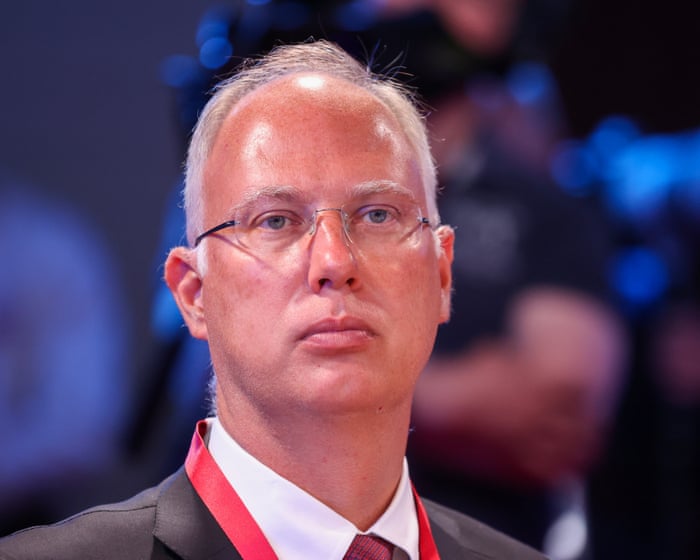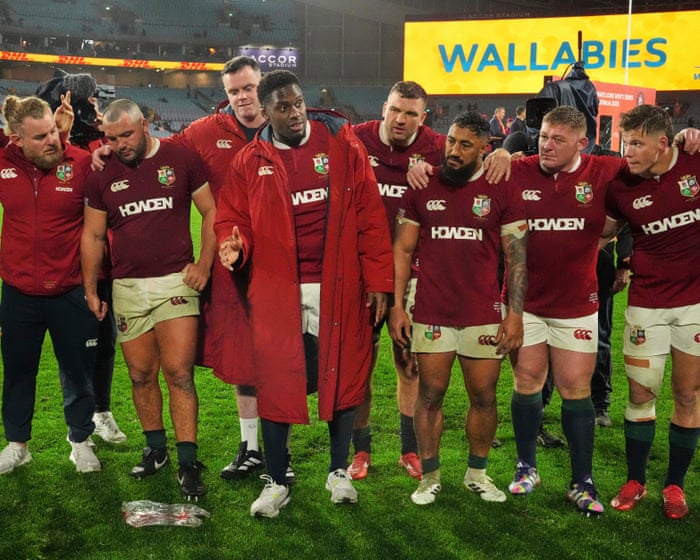When relations between Donald Trump and Vladimir Putin deteriorated this autumn, with the U.S. president publicly accusing Moscow of obstructing peace efforts in Ukraine and imposing major sanctions on Russia’s oil industry, one man spotted an opportunity.
Kirill Dmitriev, the head of Russia’s sovereign wealth fund who is familiar with the U.S. and a Harvard graduate, flew to Florida in late October. There, he met with Steve Witkoff, a real estate developer acting as Trump’s informal envoy on Ukraine.
The two men, neither with formal diplomatic experience, began drafting a plan that would impose harsh terms on Ukraine and grant Moscow extensive control over the country’s political and military sovereignty.
This scheme, which came to light in media reports on Wednesday, has returned Dmitriev to the global spotlight—a position he has long desired, according to several people who have known him over the years.
“Dmitriev is obsessed with being seen as important,” said one source familiar with him since the late 2000s Moscow business scene. “He is ruthlessly ambitious,” the source added, describing him as “lacking in substance but exceptionally skilled at self-promotion.”
The source, like others, requested anonymity to speak freely. They noted that “fake it till you make it” was Dmitriev’s approach, and “objectively, he has gone very far.”
It may surprise some that one of Moscow’s most assertive advocates was born in Soviet-era Ukraine. The son of prominent scientists, Dmitriev grew up in Kyiv and attended the elite Lyceum No. 145, a competitive math and physics school, where friends remember him as a hard-working student fascinated by the U.S.
“He was quite arrogant… but very systematic, and if he wanted to achieve something, he worked on it,” recalled Volodymyr Ariev, a former classmate who is now a Ukrainian MP.
At 15, Dmitriev was chosen by his school for a trip to the U.S., an experience that, according to Ariev, deepened his fascination with the country.
He later studied at Stanford University and pursued an MBA at Harvard. In a 2000 New York Times article about Harvard Business School, Dmitriev expressed enthusiasm for the opportunities his course offered. “There’s a great sense of bonding with your teammates. You live together, go out at night to celebrate victories or drown sorrows,” he said.
He also hinted at his ambition and talent for networking: “I also go to New York for business development, to establish strategic alliances and meet with clients, four times a month.”
After working at McKinsey and Goldman Sachs, his major business success came not in Moscow or New York, but in Kyiv. From 2007 to 2011, he managed Icon Private Equity, a Ukrainian fund handling around $1 billion, mostly belonging to oligarch Victor Pinchuk, the son-in-law of former Ukrainian president Leonid Kuchma.
Pinchuk introduced him to Vladimir Dmitriev (no relation), then head of the Russian state development corporation VEB, according to a well-informed source in Moscow with direct knowledge of the events.
Together, the two Dmitrievs convinced the Kremlin to establish Russia’s foreign investment fund (RDIF) to attract American, European, and Gulf capital into the country.
The role—ultimately managing $10 billion—seemed to suit him perfectly, noted a Russia expert.A business reporter who knew Dmitriev personally described him as smooth-talking and a regular presence at events in Davos, Riyadh, and global investor summits. He moved effortlessly from discussions on artificial intelligence to private meetings with sovereign wealth funds.
During this period, Dmitriev’s ties to the Kremlin grew stronger. His wife, Natalia Popova, formed a close personal and professional bond with Putin’s younger daughter, Katerina Tikhonova. Popova serves as deputy director of Tikhonova’s research institute, Innopraktika. An investigation by the Russian outlet the Insider also claimed Dmitriev had close connections to Russia’s security services.
A source who knew Dmitriev at the time said, “He grew extremely confident, even pompous.”
After sanctions were imposed on Russia for annexing Crimea in 2014, Dmitriev found it more challenging to promote Moscow internationally. However, he saw an opportunity with Trump’s election in 2016. A former colleague from the Russian Direct Investment Fund (RDIF) mentioned that Dmitriev quickly directed the fund to issue a statement supporting the new president the morning after Trump’s victory.
Robert Mueller’s report on Russian interference in the 2016 U.S. election revealed that Dmitriev used his connections in the UAE, through one of RDIF’s key investors, to establish a back channel to Trump’s first administration.
Following Russia’s full-scale invasion of Ukraine in 2022, Washington placed Dmitriev under sanctions. But Trump’s potential return to power offered him another chance. Dmitriev began signaling to the White House that there were lucrative opportunities in any future peace deal, highlighting prospects for billion-dollar contracts in the Arctic and other areas of U.S.-Russia cooperation—an appealing pitch for a business-focused administration.
He specifically worked to build a relationship with Witkoff, Trump’s trusted friend and long-time business associate, capitalizing on the property mogul’s enthusiasm for making deals. Together, they helped secure the release of American schoolteacher Marc Fogel in a prisoner swap in February, presenting it as a step toward improving relations between Washington and Moscow.
Dmitriev hasn’t limited his efforts to Witkoff. Much of his public activity now seems aimed at wooing other prominent MAGA figures and echoing far-right talking points. An active user of X, he posts daily about Europe’s migration “crisis,” accuses “globalists” of indoctrinating children with “pro-trans programmes,” and often promotes conspiracy theories—even using a QAnon-style slogan popular among Trump’s most extreme supporters.
Despite his Ukrainian background, it hasn’t hindered his rise. At 15, during a trip to the U.S., he told a local journalist that Ukraine had a long and proud history of independence and that growing nationalist sentiment would help “break the power of the communist system.” However, he has since become one of the Kremlin’s staunchest advocates.
Ukrainian MP Ariev stated, “Dmitriev chose Putin’s side,” noting that most of his childhood friends have cut ties with him. Ariev added that Dmitriev’s closest school friend joined the Ukrainian army and was recently wounded in battle.
A source who knew Dmitriev in Moscow during the 2010s said he rarely spoke about his birthplace. “He had no real interest in Ukraine. His attention was always on Moscow,” they said.Despite his strong loyalty to Putin, Dmitriev’s rapid ascent has caused friction with Russia’s older foreign policy circles.
Putin with Dmitriev in Moscow in 2021. Photograph: Alexey Druzhinin/SPUTNIK/AFP/Getty Images
A Kremlin insider mentioned they had offered to assist Dmitriev in engaging with the Americans and outlining a possible plan to end the war in Ukraine—help that Dmitriev outright refused.
“He could really benefit from some guidance on foreign relations, as he admitted to me he’s not an expert in that area. But he chose to handle it on his own,” the source said.
Dmitriev’s relationship with Sergei Lavrov, the long-time foreign minister, is also famously strained. Their disagreement is now widely known in Moscow and has sometimes become public.
Last February, during peace talks in Riyadh with the US, Lavrov and Dmitriev had a confrontation when the foreign minister attempted to exclude him by taking away his chair, according to two individuals who independently recounted the incident. Dmitriev eventually joined the meeting after speaking with Putin.
“Dmitriev has made enemies in Russia. But for now, he’s untouchable because he’s proving very valuable to Putin,” the Kremlin source added.
Shaun Walker contributed to this report.
Frequently Asked Questions
Of course Here is a list of FAQs about Kirill Dmitriev framed in a natural tone with direct answers
Basic Questions
1 Who is Kirill Dmitriev
Kirill Dmitriev is a Russian businessman and a close ally of President Vladimir Putin He is best known as the CEO of the Russian Direct Investment Fund Russias sovereign wealth fund
2 What is the Russian Direct Investment Fund
The RDIF is a fund created by the Russian government to attract foreign investment into the countrys economy Dmitrievs role involves negotiating major international deals and partnerships
3 Why is Kirill Dmitriev often in the news
He is frequently in the news because of his highprofile role in Russian economics and his close ties to the Kremlin especially regarding Russias international strategy and its economic response to sanctions
Role in Geopolitics Strategy
4 What is Dmitrievs connection to the Ukraine strategy
Western governments and analysts have identified Dmitriev as a key architect of Russias economic and diplomatic strategy regarding Ukraine He has been involved in backchannel communications and efforts to shape the narrative and mitigate the economic impact of sanctions related to the conflict
5 What does it mean that hes described as ruthlessly ambitious
This description points to his reputation as a highly driven strategic and effective operator who is intensely focused on advancing Russias economic and political interests on the global stage often in the face of significant international opposition
6 How does his background help him in this role
Dmitriev is a USeducated financier with deep experience in Western finance and private equity This allows him to navigate international business circles effectively and understand how to present Russias position to a global audience
Advanced Practical Questions
7 How has Dmitrievs role changed since the start of the conflict in Ukraine
His role has become more critical and public He has been a primary voice arguing against Western sanctions and has worked to forge stronger economic ties with nonWestern countries such as China and Middle Eastern nations to offset economic pressure
8 What are some examples of his strategic actions
Examples include his early involvement in vaccine diplomacy and his reported participation in unofficial diplomatic talks with other nations



